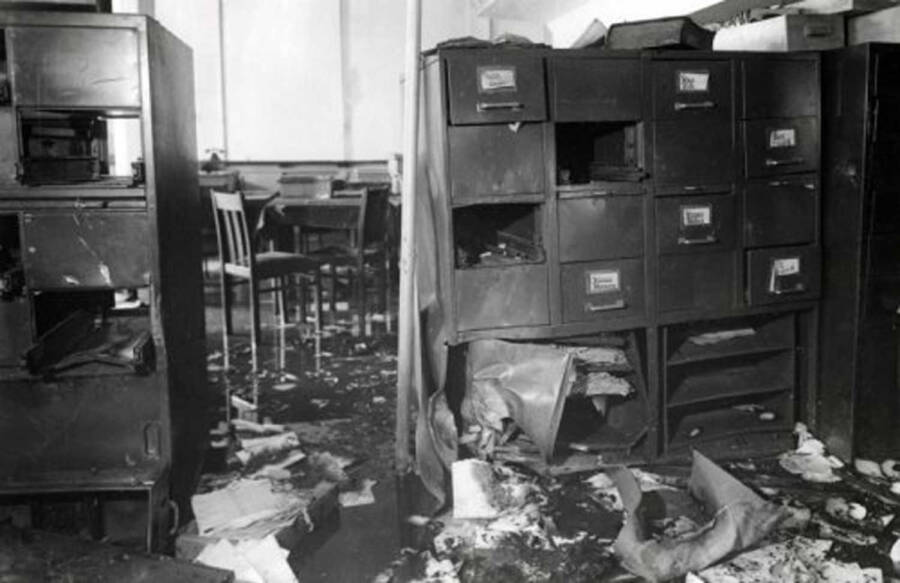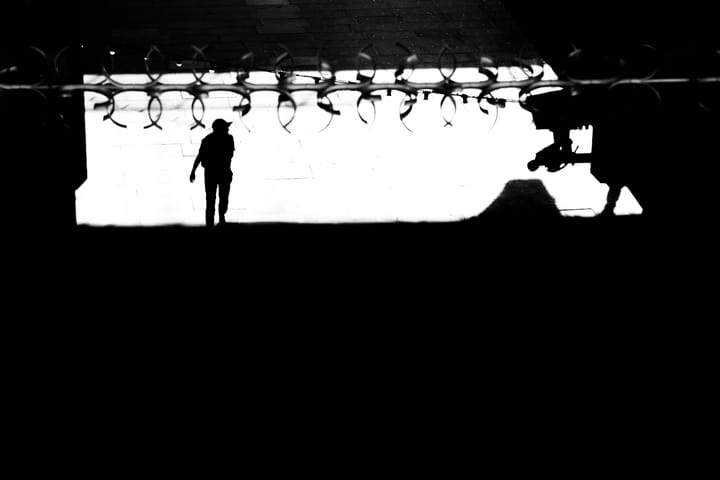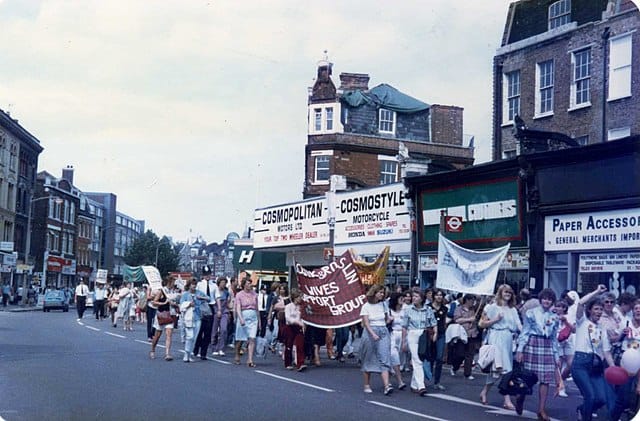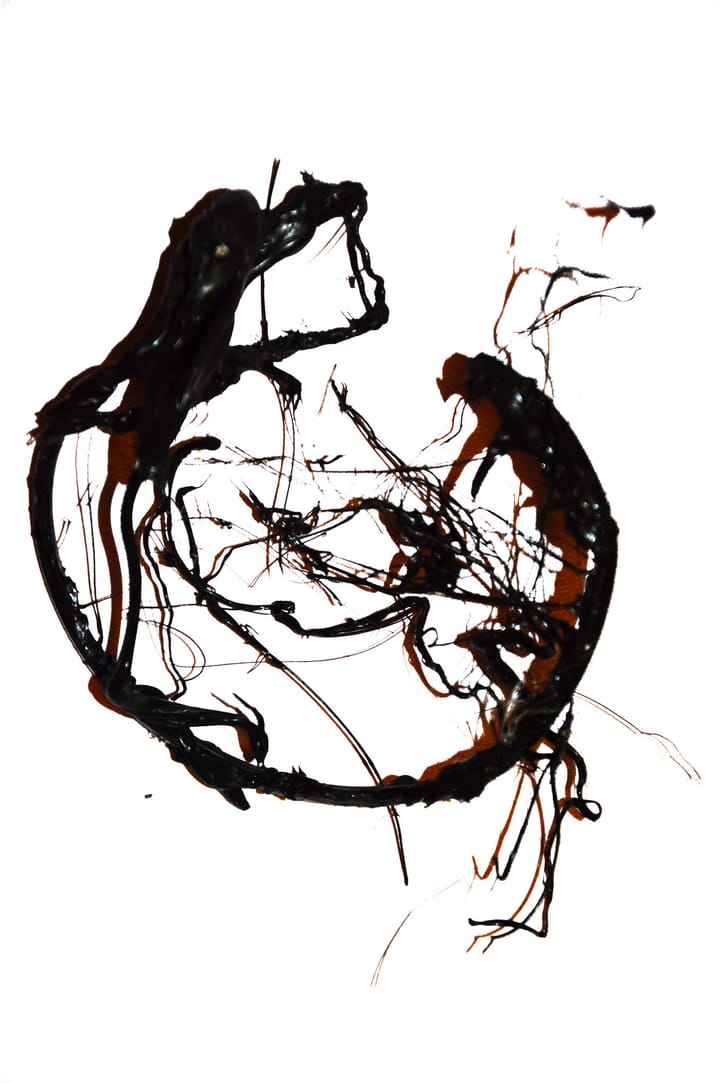Arondeus shows that the queer community is one of the strongest and the bravest, willing to fight back, risk everything and act in order to save lives from fascism. In the words of one of the queer antifascists currently fighting Daesh in Syria, 'These faggots fight fascists'.
[Originally published in the previous iteration of Interregnum on 21st February 2018].
On the night of 27th March 1943, the Amsterdam Fire Department received a telephone call from the Gestapo. The Public Records Office — a registry office that held the information of hundreds of thousands of Dutch citizens, and thus a useful resource for the Nazi occupiers hunting Jews and ‘degenerates’— was on fire.
Firefighters sympathetic to the Dutch Resistance deliberately took their time responding so that the fire could cause maximum damage. When they did attend the scene, they fought the flames using excessive amounts of water so that the surviving records would also suffer from water damage.
After the fire had died and the smoke had cleared, they inspected the damage. It was obvious that it had been started deliberately. Nearly a quarter of the building had been destroyed and part of the roof had collapsed. No-one had been killed, but at least 15% of the records had been completely destroyed. Filing cabinets had been turned over, drawers emptied and their contents scattered across the floor. The records that did survive were mostly mixed up. Thousands of them were water and smoke-damaged too, making them practically unreadable. It was obvious to the Gestapo officers who arrived on the scene to inspect the damage the morning after, that this one, relatively small act would delay the Nazis’ attempts to identify and round up Jews and other groups (such as LGBT+, disabled and Roma people) across the whole of the Netherlands. As a result, the person or persons responsible probably helped to save thousands of lives.
The people responsible for the firebombing of the Amsterdam Public Records Office were not expert commandos. They were not trained saboteurs. They were not even battle-hardened soldiers.
They were a group of queer antifascist artists, led by an openly gay man, Willem Arondeus.

*
Willem Johan Cornelis Arondeus was born on 22nd August 1894 in the town of Naarden, Holland, a few miles south east of Amsterdam. His father was a fuel trader who worked in the nearby city and his mother was a costume designer for the theatre. Willem was the youngest of six children. He was also one of the most creative, with a love of painting, illustrating and writing that he developed throughout his life.
At 17, he was honest with his parents about his sexuality. He told them that he was a homosexual and that he planned on living openly as one. This was a dangerous thing to do, even in relatively open-minded Holland. His parents refused to accept his sexuality and his father chucked him out of the house. Willem never really spoke to his parents again.
From this point on, he relied on himself and his friends. He began to work as a professional illustrator, designer and painter. Although he attracted some important commissions — like painting an important mural for Rotterdam City Hall in 1923 — he never really achieved widespread fame or commercial success. In 1935, he started writing professionally instead, and it was here that he found more success. He published a few volumes of poetry and short stories that he had written in the early 20s, and by the time the war broke out in 1939, he had published two novels and a biography.

The full force of the German Blitzkrieg hit the Netherlands on 10th May 1940. Paratroopers, tanks, and the Luftwaffe streamed into the country. They steadily advanced. On the 14th May 1940, at around 11am, the Nazis carpet-bombed the centre of Rotterdam, killing hundreds and making thousands homeless. The German general delivered an ultimatum to the Dutch generals; capitulate immediately or watch your cities suffer the same fate. By 14th May, most of the Dutch Army had surrendered. By 17th May, the country was officially in the hands of Hitler.
Like everywhere else under Nazi occupation, Jews in the Netherlands were being asked by the Nazis to register their details with the authorities, under the false claim that it was for their own protection. In actual fact, this information was being used to arrest Jewish men, women and children and send them to the death camps in Germany and Eastern Europe.
The exact date and reasons that Willem Arondeus joined the Dutch Resistance will never be known, but he was active within it from at least early 1941. In that year he created several clandestine publications, where he exposed the truth about the systematic murder of Jews and minorities under the Nazis and urged other artists to resist the fascist regime and the occupation of the Netherlands. In early 1942, he took the decision to merge one of his publications, the ‘Brandarisbrief’, with that of his boyfriend’s, sculptor Gerrit van ger Veen's ‘De Vries Kunstenaar’. Together they issued calls for artists and intellectuals to resist the censorship of the Nazis and to create a mass movement of defiance against all aspects of the occupation.
As the war dragged on, and an ever increasing number of Jews were arrested and murdered, Willem Arondeus found himself drawn to more direct forms of resistance. Along with several other antifascists, he formed the ‘Raad van Verzet’ or ‘Resistance Council’, with the aim of forging records for the Jewish community in Amsterdam. Led by Arondeus, the resistance group had a number of openly queer members, including the lesbian cellist, Frieda Belinfante and Arondeus’ partner, Gerrit Van her Veen.
They initially had success with this, but soon discovered a problem. Forged records could be easily identified by cross-referencing their information with that of the records held in the Amsterdam Public Records Office. The Nazis had begun to realise that a group was actively forging records in the city and relied on the records office to identify their targets. For Arondeus and the Raad van Verzet there was only one solution: destroy the records in it.
The Raad van Verzet decided that their course of action should have no casualties: the only things to be damaged were the records. On the night of 27th March 1943, the group put their plan into action. Disguised as policemen, they drugged the SS guards who were on duty at the entrance of the Amsterdam Public Records Office and slipped inside.
They doused the filing cabinets with flammable liquid, set fire to them and escaped. No lives were lost, yet thousands were saved.
*
So, why is this story relevant to our lives today?
With fascism rising across the world; with Golden Dawn murdering refugees, anarchists and socialists in Greece; with emboldened neo-fascists in the USA calling for 'peaceful ethnic cleansing' and with Britain First bleating their poisonous hate of minority groups across our streets; resistance to fascism is more relevant than ever— particularly resistance led by the groups that are consistently targeted by fascism. Fascism doesn't start with a roar. It starts with a whimper. That whimper is now becoming louder.
As a queer, to me Willem Arondeus represents defiance in the face of tyranny, courage in the face of hopelessness and dignity in the face of dehumanisation. Arondeus shows that my community is one of the strongest and the bravest, willing to fight back, risk everything and act in order to save lives from fascism. In the words of one of the queer antifascists currently fighting Daesh in Syria, 'These faggots fight fascists'.
*
The Nazis were quick on the trail of the Raad van Verzet after the Amsterdam Public Records Office. They were betrayed by a Nazi-sympathising whistleblower and all arrested.
In July 1943, Willem was led to the dunes outside of Overveen in handcuffs. He was tied to a wooden post, a hood was put over his head and he was executed by firing squad.
His last recorded words, said to his lawyer before his execution, are just as relevant today as they were over 75 years ago. They should be a rallying cry for any queer (and especially gay) antifascists to always hear and remember:
'Let it be known that homosexuals are not cowards'.






Comments ()